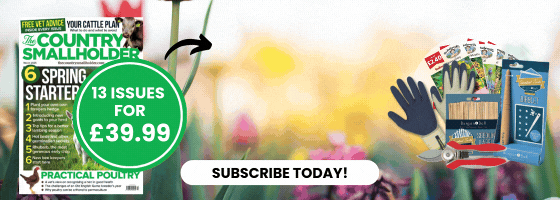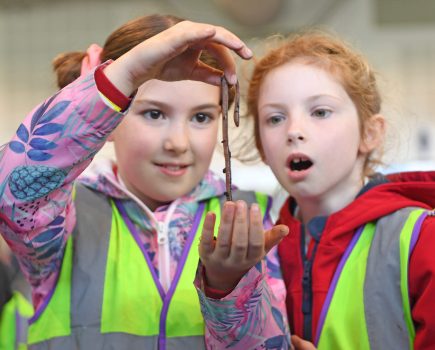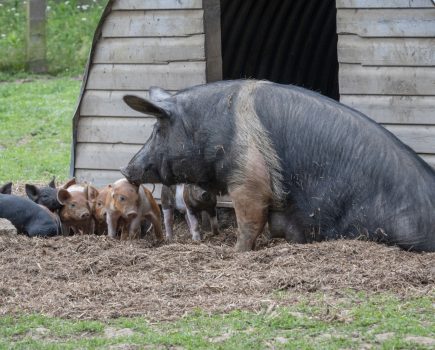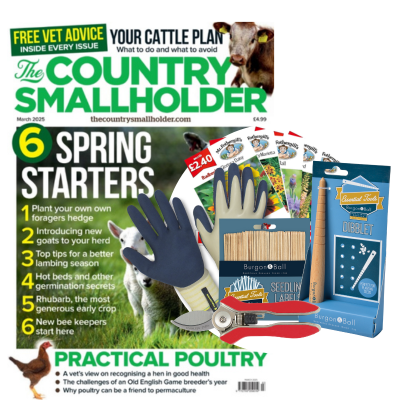Justina and Liam Gavin inherited a small family farm in Ireland and have turned it into a flourishing business. Debbie Kingsley chatted to them to find out more about their busy lives.
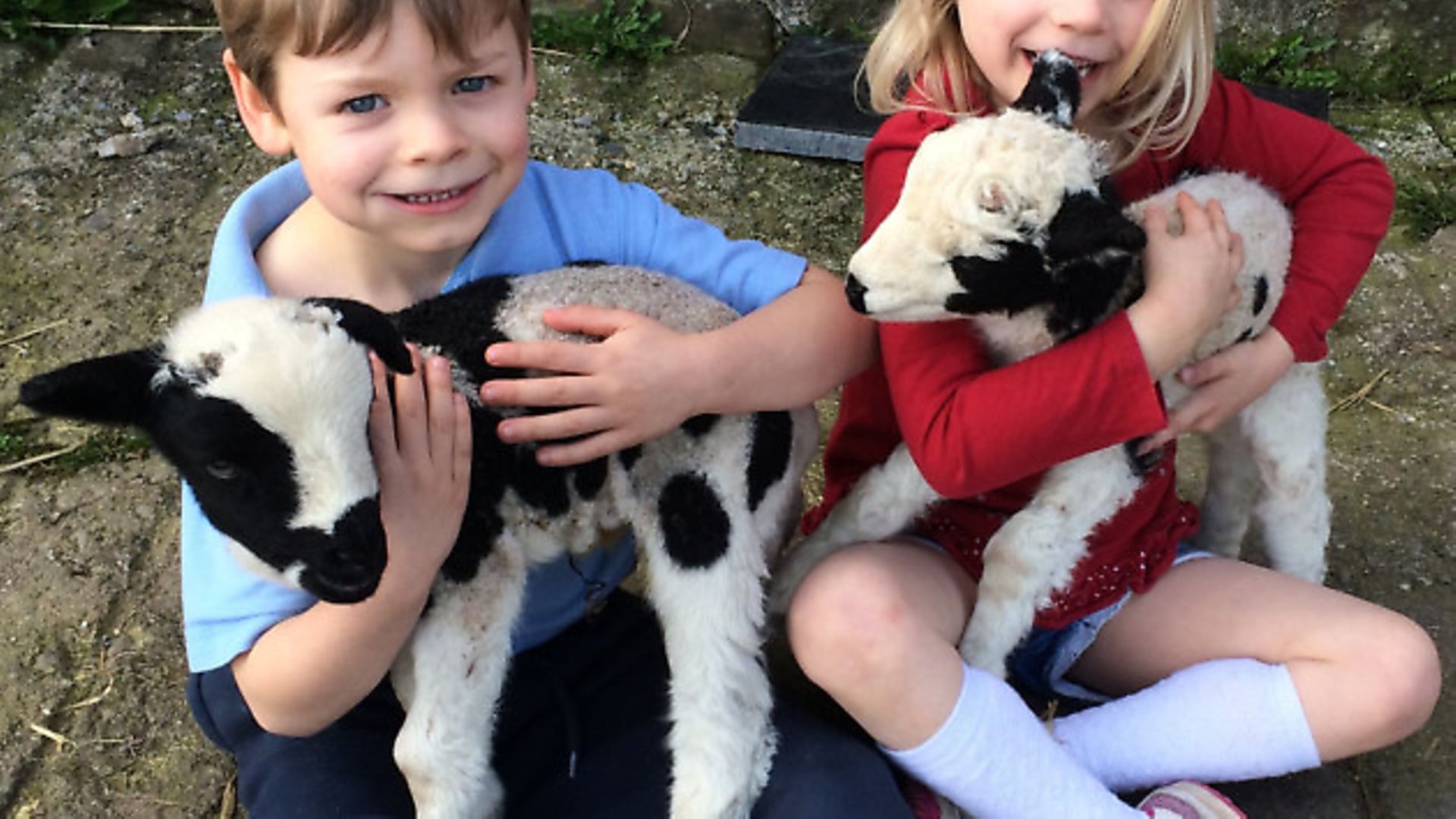
It was early 2012 that I met Justina and Liam Gavin. They came on a course at our farm – a bespoke livestock day to prepare themselves for taking over the family farm in Ireland. Three years later they have turned what was a semi-derelict farm into a thriving, growing business.
Justina picks up their story. “Farming was a dream we shared since we met working in East Africa in the 1990s. Liam loved the family farm in Roscommon as a child. His uncle and aunt ran Drumanilra, what is now our 40 acre holding, as a dairy farm. The farm has been in his family for 200 years and his mother and grandmother were both born here. He helped his uncle on the land and later studied Agricultural Science, always with a view that he would get back to farming full time at some point. Life intervened and he did several agriculture-related jobs around the world before working in Uganda.”
“My grandparents married in the ‘Dig for Victory’ era of the Second World War, and I was fascinated by their green fingers and the tiny plot at their council house which they turned into a vibrant garden of vegetables and flowers. Felicity Kendall and ‘The Good Life’ also made a major impression on my 1970s childhood, but it was in Uganda, where I volunteered as a teacher, that I was exposed to real ‘life depends on it’ subsistence farming. I helped my neighbours dig “Irish” and sweet potatoes, beans and cabbages. They would be barefoot, usually with a baby strapped to their back, always singing and often with scars on their feet from a misjudged swing of their hoe. Liam and I met in Uganda and then worked together in Kigali, Rwanda, importing seeds, agricultural tools and refugee survival kits for distribution to the many refugee camps.”
“On our return to the UK and Ireland, we married, set up a chain of coffee shops in Dublin (Liam is the entrepreneur in the family!), and then moved to Devon, to establish another business, a self-catering holiday agency. Over the next 10 years with a growing family, we became increasingly interested in the provenance and quality of our food and the organic movement. We kept an allotment, bought local and organic food whenever we could and scanned the property pages every weekend for a rural property where we could realise our dream of getting back to the land. When I was pregnant with our first son back in 2004, Liam’s uncle, having no children himself, told Liam that he planned to leave him the family farm. We began to visit more frequently, taking many trips to the area with the kids. Liam already loved the farm and his uncle and aunt’s way of life, and I very quickly fell in the love with the place too. In the end the move was an easy decision for us.”
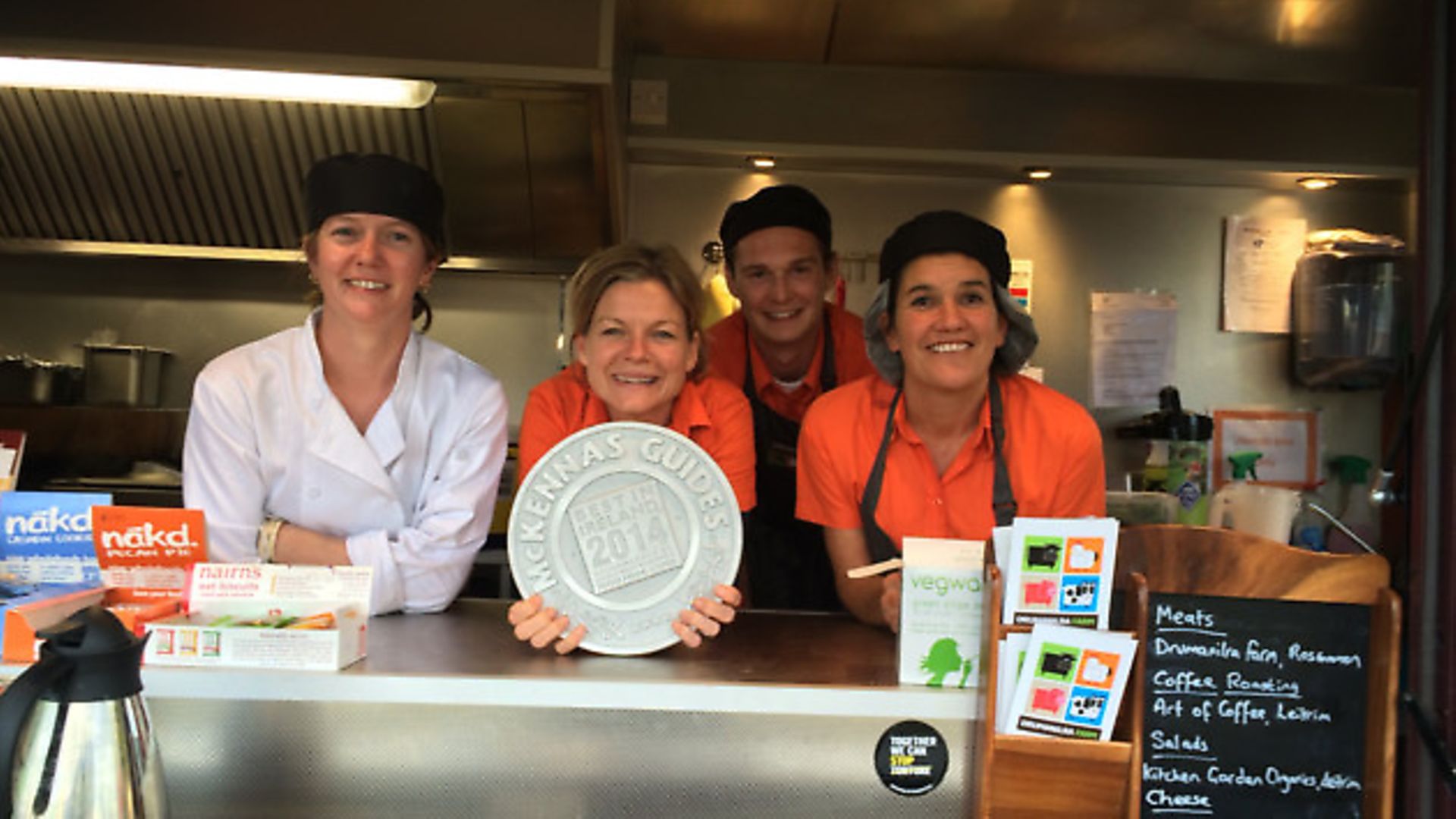
“The farm is an area of special conservation, and designated as ‘disadvantaged’ in terms of land quality. It is in a beautiful location, with its 40 acres fanning out from the farmhouse, perched on top of a ridge, down to the lakeshore. We have 500 metres of lake frontage with old stone jetties sheltering a swimming area. The farm is crisscrossed by traditional stone walls and ancient hedgerow. It is beautiful but there are challenges. Roscommon weather is notoriously wet, the land is boggy in places and it hadn’t been farmed for nearly 30 years. The old orchard was completely overgrown, as were the field boundaries which had encroached into the fields with acres of fern and bramble. Liam spent the first year cutting back hedges, clearing field drains and putting in new ones. He has done much of the logging and clearing himself, bringing in help in the form of diggers, drivers and our neighbours when needed. The farm is now fenced into three sections around which we rotate cattle, sheep and pigs. In 2013 we started organic conversion with the Organic Trust and are due to gain full organic status this year. We began to stock the farm in 2013 and put in polytunnels to grow veg for the family; the farm began to take shape as a proper farm.”
“We have Dexter cattle, a small Irish breed known for its hardiness and the delicious flavour of its meat. We have Tamworth and Berkshire pigs, Jacob and Shetland sheep, and small flocks of hens, geese, ducks and turkeys.”
“Liam looks after the land, cattle, sheep and pigs and I look after the vegetables and poultry, sell the produce and do the paperwork. Our children are still young; son Fionn is 9 and twins Aaron and Emily-Anne are 6. They have so far escaped being allocated routine jobs but are great at helping. They enjoy feeding the chickens, collecting eggs, planting and picking food, and love riding around the farm on the farm buggy, helping their dad feed the larger animals.”
“We spend a lot of time developing our product and finding a market for it. I spent much of 2014 touring Ireland with our shepherd’s hut catering trailer serving Dexter burgers with local organic salads, artisan bread and cheeses, at festivals and shows. Liam spends time working in our small butchery with our part-time butcher, learning the craft and developing our sausage and dry cure recipes.
“At Christmas we opened a small pop-up shop in Boyle, selling turkeys, traditional dry cure Christmas hams, sausages, bacon and beef and show-cased local cheeses, breads, organic veg and crafts and are now working to open it on a more permanent basis. In the meantime, I sell our produce at the local farmers’ market on Saturdays, and we purchased a one acre site in town which we hope to develop into a farm-shop, cafe, butchery and bakery.”
“When I hear Fionn proudly telling his friends about our Dexter burgers, or how delicious our bacon is, or see Emily cuddling a newborn chick, or Aaron just generally filling his boots with mud, I feel like we’ve got something right. And I love talking to our customers about the food we are producing and hearing how appreciative people are of what we are trying to do. One of my proudest moments was realising how many vegetarians were buying our meat. People who hadn’t bought pork for years because of animal welfare concerns bought from us, either for themselves as a treat, or for members of their families.”
And do they have any words of wisdom for people contemplating making the leap? “Go for it – but think through the budget and cash flow carefully. If you are moving to a new part of the country, (or a different country) spend as much time as possible in the area; get to know neighbours and the local community, visit the local farmers’ market, chat to the traders and learn the local language. Having a strong community around you, and finding some like-minded people to share the experience with, will make the challenges you face far easier to cope with, and the good times more fun if you have others to celebrate them with!”
Justina and Liam’s vision for the farm is three-fold:
1. To be as self-sufficient as possible in terms of food, water and energy. We have our own spring, and produce most of our own vegetables, all our meat, poultry and eggs, as well as firewood.
2. To find a way of generating an income from the farm that could support us, without needing to work outside the farm to make ends meet. This is still a work in progress.
3. To farm organically and support traditional Irish breeds and farming methods.
Follow Justina and Liam and the continuing story of Drumanilra Farm on facebook www.facebook.com/Drumanilra
Image(s) provided by:
Archant
Archant


